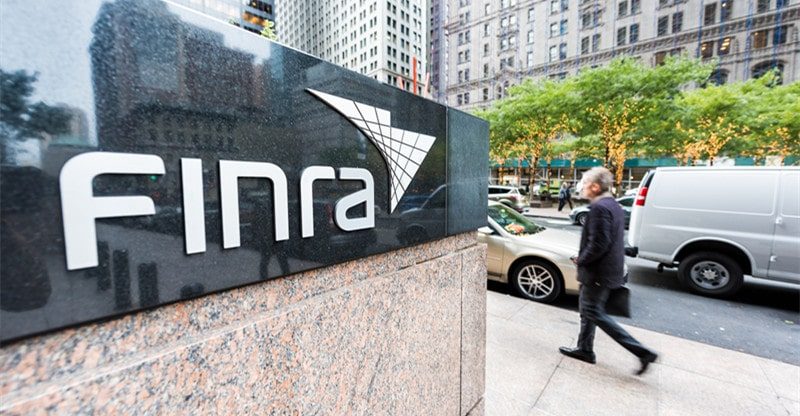What Is Considered As A FINRA Sanction?
FINRA is an acronym for the Financial Industry Regulatory Authority. Now, while one doesn’t often hear the word, the industry used to describe the world of financial investing, it does indeed fit the definition found in the Merriam-Webster Dictionary: “A group of businesses that provide a particular product or service.” And just like other businesses that provide services and products, from aviation to child care, the business of investing needs an official entity to oversee it.
FINRA came into being in 2007 when the National Association of Securities Dealers (NASD), the regulatory body that had overseen the securities industry since 1939 and played a role in managing stock market trading, merged with the New York Stock Exchange’s (NYSE) arbitration, enforcement, and regulatory arm. The purpose of the consolidation was to reduce redundancy, simplify complexities and reduce the costs of enforcing compliance.
What/Who is FINRA
Unlike other authorities that regulate services or sectors, FINRA is not a federal or municipal agency, nor are the members of FINRA government-appointed.
FINRA is a self-regulatory private organization charged with safeguarding the integrity of the financial markets and overseeing the activities of the membership brokerage firms and exchange markets. Overseen by the Securities and Exchange Commission (SEC), FINRA operates at no cost to taxpayers.
What Does FINRA Do?
The mission of FINRA is to protect the American investing public from fraud and bad investment practices carried out upon the advice of unscrupulous financial advisors. To this end, FINRA
- Writes rules intended to ensure registered brokers and broker/dealer firms operating in the USA are acting ethically.
- Conducts examinations to ensure that investment firms are in compliance with its rules.
- Works to foster transparency and educate the investing public.
If it discovers cases of insider trading or securities fraud, FINRA refers them to the SEC for litigation and prosecution if warranted. But FINRA also has the power to work on its own and issue sanctions when they identify cases of misconduct.
The Whats and Whys of FINRA Sanctions
Just as one country may impose economic sanctions on another country when its governing head judges it to be engaging in political or military activities they regard as threatening or harmful, FINRA makes use of enforcement actions(sanctions) when it determines that an investment firm or individual broker is posing harm to individual investors with the misleading advice they give or the investments they push.
FINRA sanctions may involve levying fines, ordering suspensions, and in the most serious cases of bad actors, barring financial advisors from the brokerage industry. And in many instances resolution will involve obtaining restitution for individuals who have been harmed by the actions in question.
In addition to bringing about restitution and ridding the investment industry of unethical brokers and financial advisors, FINRA regards protecting the integrity of the markets as a high priority.
The ABC’s of the FINRA Sanction Procedures
When an inappropriate action is brought to the attention of FINRA, if it determines that disciplinary action is warranted, the FINRA enforcement department will file a complaint with the FINRA Office of Hearing Officers (OHO), an independent office within FINRA. OHO serves as their “courthouse”, and is made up of impartial professional adjudicators who preside over FINRA disciplinary actions.
When OHO receives a complaint and decides it warrants a hearing, it will appoint a three-person panel consisting of a chief hearing officer and two industry panelists he or she chooses. These panelists may be from a variety of sources: current and previous members of FINRA District Committees; members of the FINRA Market Regulation Council, its National Adjudicatory Council, or perhaps a former FINRA Governor.
When the hearing is held, evidence will be presented and the panel will decide whether the respondent firm or individual broker has engaged in conduct that violates either FINRA rules, federal securities rules, or U.S. Securities and Exchange (SEC) regulations.
And just as in criminal and civic trials, the panel will look at the precedents which in this case would be previous SEC and National Adjudicators Council (NAC) decisions that involved similar violations. In addition, it may order that the guilty respondents make restitution to all parties who have been harmed by their actions.
Finally, the panel will present a formal statement explaining how it reached its decision. And if they determine violations have occurred, they will levy the sanctions they feel fit the violations.
FINRA Sanctions By the Numbers
In 2019, acting in its role as sanction enforcer in chief, FINRA initiated 854 disciplinary actions, ordered that a total of $27.9 million be paid in restitution to investors who had been misled or ill-advised;and levied $39.5 million in fines.
But their actions also involved non-monetary sanctions. Six member firms were expelled, 21 received suspensions, and 348 individuals were barred from engaging in securities transactions. And those were just the sanctions the regulatory authority took on itself The cases it passed on to the SEC involved 827 involving insider trading and investment fraud.
FINRA Sanction Guidelines
No one can say that FINRA broadsides the firms and individual brokers it sanctions, it gives ample warning in the form of sanction guidelines that contain information that can be of help to all involved in the hearing, both the adjudicators and the respondents. The adjudicators (FINRA members on the hearing panel) can use them to decide appropriate sanctions for the incursion involved.
The guidelines can also be used by respondents (those against whom complaints have been filed), their counsel, and any other involved parties to help them prepare themselves for the types of sanctions they may be facing and understand them once the decision has been given.
These guidelines are also of value in cases where respondents decide to settle out of court (so to speak) which is often the case since it’s widely known that doing so can result in sanctions more lenient than those they may face if the case is fully litigated. Should they decide to do this, the guidelines can be of help to FINRA staff and the respondents in crafting appropriate settlements.
FINRA Sanctions Appeal Process
The guidelines can also come into play if a responding individual or firm decides to claim its right to appeal the decision reached by the hearing panel and initiate a formal review.
Sanction Appeals
FINRA proceedings allow respondents to appeal the panel’s decision to the National Adjudicatory Council, (NAC), the FINRA committee charged with carrying out reviews of initial decisions arrived at in disciplinary hearings if they feel that either the proceedings did not follow sanction guidelines or were not supported by the facts presented during the proceedings.
It is up to the NAC to decide whether or not to accept the appeal. If they do accept it, they will step in and review the proceeding. And in the end, whether their decision supports or negates the sanctions, it will serve as the final word except if……
If the respondents still do not feel they deserve a sanction or other disciplinary action, there is still one step left. They can take it to the FINRA Board of Governors for a final review of the NAC’s decision. But since in most cases, it is a rare occurrence for the Board of Governors to agree to a review, unless they do, the NAC’s ruling is regarded as final.
Meanwhile, until the appeal or appeals have been completed, any sanctions that may have been levied will be on hold. Enforcement will be delayed. What this means for any parties who may have been harmed is that any restitution they may have been expecting will also be up for review. And so their remuneration if it is still deemed to be warranted will be delayed.
FINRA Enforcement Priorities
The number one priority of FINRA is to identify cases of misconduct and fraud and obtain restitution for investors who have suffered financial damage. Its other priorities include
- Ridding the financial market of brokers who engage in fraud or other grievous misconduct, especially those who are repeat violators.
- Safeguarding seniors and others who are vulnerable to bad advice.
- Making sure the market maintains its integrity.
Still, despite these priorities, it is advisable that even those who have already brought their case of fraud or deception to FINRA’s attention consult a law firm focusing on investment loss recovery and giving counsel that will help investors recover losses.
And since the FINRA sanctions can be emotionally and financially grueling for wronged parties awaiting a decision even from a distance, it helps to have an attorney by their side; one with experience in successfully pursuing investment loss claims in FINRA proceedings.



